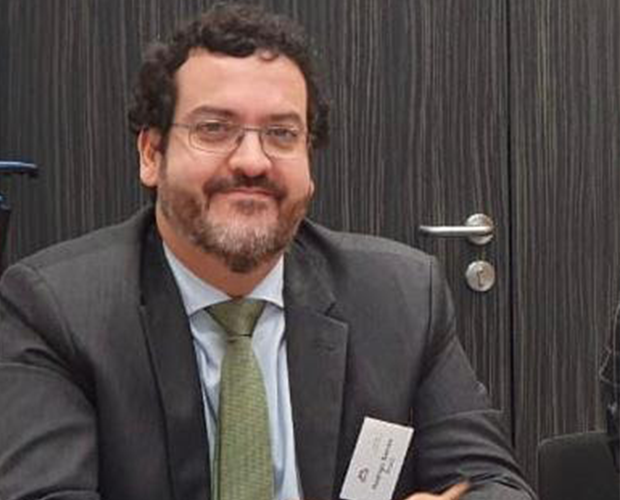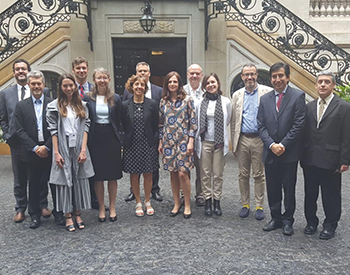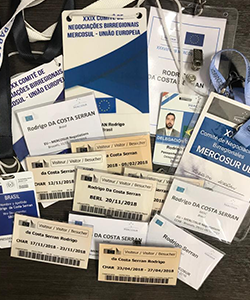Alumnus negotiates EU-Mercosul agreement

Rodrigo Serran ’14 forges opportunities for Brazilian economic growth in the EU as part of the largest trade agreement in Brazil’s history
Aug. 13, 2019 | By Rachel Hommel | GPS News
UC San Diego School of Global Policy and Strategy (GPS) alumnus Rodrigo Serran ’14 has had a busy summer at the helm of one of the most important trade agreements to date. Serran, who serves as the General Coordinator of Rules of Origin at the Undersecretariat of International Negotiations of the Foreign Trade Secretariat in Brazil, recently helped successfully close the EU-Mercosul agreement on June 28.
The EU-Mercosul agreement is the largest and most complex agreement ever negotiated by MERCOSUR, which consists of Argentina, Brazil, Paraguay and Uruguay. The trade agreement, taking almost 20 years to accomplish, encompasses a variety of themes, from market access to government procurement, as well as rules of origin and technical barriers to trade.
“Reducing barriers and providing greater legal certainty and transparency of rules will facilitate the insertion of Brazil into global value chains, generating more investment, employment and income,” said Serran. “Consumers will also benefit from the agreement, with access to a greater variety of products at competitive prices.”
Working in the Ministry of Economy in Brasília, Brasil, Serran’s focus is on trade negotiations. As the Brazilian representative in the agreement’s negotiation on Rules of Origin, Serran negotiated the criteria used to define where a product was made. This becomes important to assure trade preferences concession only for those products that are considered originating from the trade partner, in this case, the EU.

“Determining where a product comes from is no longer easy when raw materials and parts crisscross the globe,” said Serran. “Rules of origin are therefore needed to attribute one country of origin to each negotiated product. In a globalizing world, it has become even more important that a degree of harmonization is achieved.”
The EU-Mercosul agreement marks a historic milestone in the relationship between MERCOSUR and the European Union, with around 25 percent of world GDP and a market of 780 million people, Brazil being the largest. Serran had an important and active role in the discussions, keeping a commitment to economic openness and solutions that was fostered during his time at GPS.
“The teamwork with my colleagues at GPS helped me a lot, for instance, working over different points of view to find the best solutions, defining roles and splitting tasks and helping your teammates when difficulties appeared,” recalls Serran.
Serran also fondly remembers his coursework, which set the stage for his current career. These include negotiations exercises in Strategy and Negotiations with Professor Ulrike Schaede, trade theories in Economics of Trade Policy with former Professor Thomas Baranga, and Topics of International Trade with Professor Gordon Hanson, where Serran studied the Mercosul free trade agreement in his final Gravity project.
 “The knowledge I acquired at GPS was very important in understanding how international trade impacts countries’ economies, and the policies that might foster them,” said Serran. “Additionally, I learned the necessary tools to critically negotiate and formulate strategies.”
“The knowledge I acquired at GPS was very important in understanding how international trade impacts countries’ economies, and the policies that might foster them,” said Serran. “Additionally, I learned the necessary tools to critically negotiate and formulate strategies.”
A true representation of a GPS Globetrotter, Serran suggests that despite the recent protectionism spike, it is important to remember the globe will always be connected – from trade to investment to logistics. For the world, international trade will always be important.
“My advice to GPS students is to continue to believe in this idea and, as a consequence, invest your studies in all the subjects related to international relations, such as politics, economics, policy, etc.,” suggests Serran. “GPS will provide you many tools to foster your careers in these areas!”

